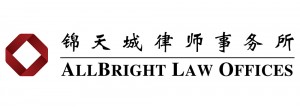When a shareholder of a limited liability company transfers its equity, other shareholders (priority holders) have the right of first refusal under the Company Law. However, for the transfer of state-owned equity, while the Measures for the Supervision and Administration of the Transaction of State-owned Assets of Enterprises explicitly require the public transfer of state-owned equity through equity exchange (market exchange), the measures do not provide whether the priority holder must exercise the right of first refusal through market exchange.

Associate
AllBright Law Offices
According to paragraph 2 of article 22 of the Provisions of the Supreme People’s Court on Several Issues Concerning the Application of the Company Law (Judicial Interpretation IV), if the state-owned equity of a limited liability company is transferred at a legally established equity exchange, the trading rules of the equity exchange can be referred to when relevant provisions of the Company Law are applied.
The authors note that neither the Beijing Equity Exchange nor the Shanghai United Assets and Equity Exchange regard the participation of the priority holder in the market exchange as the prerequisite for the exercise of the right of first refusal. According to the provisions of both equity exchanges, the priority holder has the right to elect to participate in the market exchange, and exercise the right of first refusal under the same conditions, or elect not to participate in the market exchange, and decide whether to exercise the right of first refusal after the final offer of the intended transferee is determined.

Trainee
AllBright Law Offices
On the contrary, Zhejiang Property & Stock Exchange explicitly requires the priority holder to participate in the market exchange. Otherwise, it will be deemed as waiving the right of first refusal.
Although current judicial practices are not completely consistent, the authors sorted the following mainstream opinions from relevant court decisions:
(1) The priority holder will not lose the right of first refusal automatically due to non-participation in the market exchange. According to a judgment made by Shanghai No. 2 Intermediate People’s Court on a case of equity dispute, the court of first instance held that silence can be regarded as the expression of will only when it is provided by law or agreed between the parties. In the absence of express provisions of law, and the priority holder’s express waiver, non-participation in the market exchange can’t lead to the loss of right of first refusal.
The court of second instance further held that the transferor’s failure to inform the priority holder of the transaction situation, after determining the non-shareholder-intended transferee, had created an obstacle to the timely and lawful exercise of the priority holder’s rights. Moreover, the equity exchange is not a judicial authority, and has no power to legally decide whether the priority holder has the right of first refusal, and the trading rules it sets should not contradict the laws and regulations.
(2) The priority holder should not be subject to the qualifications of the transferee announced by the equity exchange. According to the judgment made by Beijing No.2 Intermediate People’s Court on an appeal concerning a dispute over equity transfer, the court of first instance held that since the priority holder did not meet the transferee qualifications announced by the equity exchange, the priority holder had reasonable grounds to consider its right of first refusal was excluded. The transferor and the equity exchange should give a reasonable period for the priority holder to participate in market exchange if the priority holder had that intention.
(3) The announcement of equity transfer should disclose whether the priority holder waives the right of first refusal, and the priority holder may exercise the right of first refusal after the result of bidding is generated. The People’s Court of Shancheng District in Hebi City, Henan province, held in a case of equity dispute that the period of exercising the shareholder’s right of first refusal shall start from the time when the transferor publicly expresses the transfer intention, and formally gives the notice of the transfer conditions.
In the case of transfer by bidding, notifying the priority holder to participate in the bidding does not realize the protection of the right of first refusal. China’s current laws and regulations allow the priority holder to retain the right of first refusal when the transferor transfers its equity by bidding. Pursuant to the provisions of articles 13 and 32 of the Operating Rules for Transaction of State-owned Equity of Enterprises, the announcement of equity transfer before bidding should disclose whether the right of first refusal is waived by the priority holder. After the bidding result is generated, the priority holder may exercise the right of first refusal pursuant to relevant laws and regulations.
In addition to the above judicial practice, article 21 of above-mentioned judicial interpretation IV specifies the statutory period for the priority holder’s exercise of the right of first refusal, that is, if a shareholder of a limited liability company transfers equity to any third party and fails to seek the opinions of the priority holder on the transfer of equity, or damages the right of first refusal of the priority holder by fraud, malicious collusion and other means, the people’s court shall support the priority holder to purchase the transferred equity under the same conditions, except that the priority holder fails to claim within 30 days after knowing, or should know, the same conditions for exercise of the right of first refusal, or it has been more than one year from the date of the equity change registration.
In conclusion, the authors believe that if the priority holder has not expressly waived or delayed in claiming the right of first refusal, the failure of the priority holder to participate in the market exchange does not necessarily lead to the loss of that right.
To avoid disputes among shareholders over the right of first refusal in the transfer of state-owned equity, the authors suggest that shareholders specify in the shareholders’ agreement, or the articles of association, that the right of first refusal enjoyed by the priority holder shall not be affected by the requirements of the market exchange, and the transferor shall ensure that the priority holder has the right to decide whether to participate in the market exchange procedure, and exercise the right of first refusal.
Lu Xiang is an associate and Ciera Rui is a trainee at AllBright Law Offices

AllBright Law Offices
11-12 Floor, Shanghai Tower
No. 501 Yincheng Middle Road
Pudong New Area, Shanghai 200120, China
Contact details:
Tel: +86 21 2051 1000
Fax: +86 21 2051 1999
Email:
xiang.lu@allbrightlaw.com
ciera.rui@allbrightlaw.com
Website: www.allbrightlaw.com





















